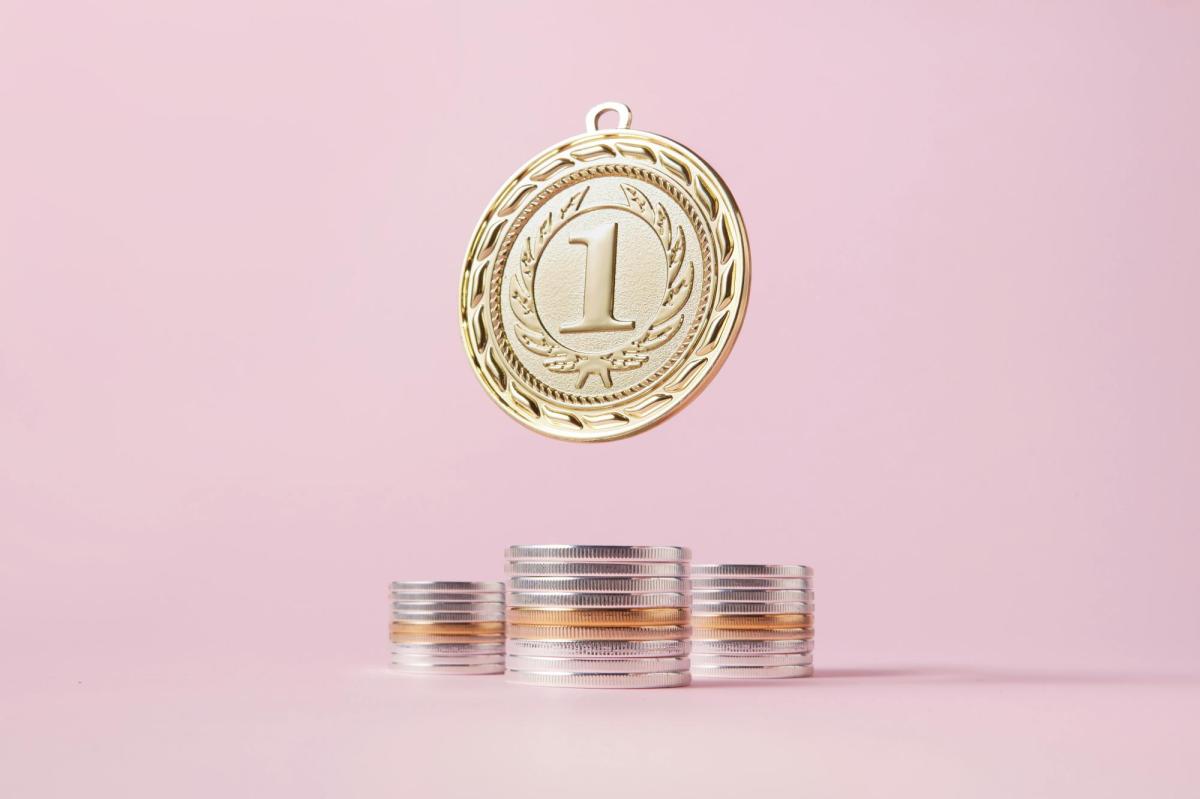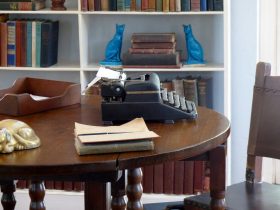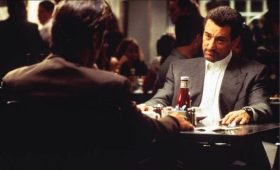In awe and envy, we’ve all read and watched longlist and the shortlist announcements and then, with a flurry of excitement, the eventual winners of various literary awards. Some of them come with modest prizewinnings while, in others, the cash pot is more substantial. ArtsHub surveyed a range of writers to gauge how winning a prize or two may have changed their lives.
Validation as and permission to be a writer
For many surveyed, being chosen as the winner was a confidence boost that meant their writing was on the right track. Alice Robinson won the Readings Prize for New Australian Fiction in 2019, a prize awarded to a debut or second novel.
Although Robinson admits there could have been a more exciting way to spend the lump sum than to pour it into the mortgage, she says, ‘Winning the prize was so affirming. I never embarked on a writing practice to become rich or famous (a folly!). External validation was never the goal. But there was something soothing about being recognised within the industry. Before that, I always felt that my writing was a bit weird or marginal. Winning the Readings Prize gave me a big boost in my confidence. It made me feel I should keep going.’
Amra Pajalić won the 2009 Melbourne Civic Prize Award, based on public votes. ‘I was in shock. I had quit my job while pregnant, and when my book was under contract, and dedicated myself to writing. This prize helped me get a grant that supported me for a year while I worked on my next novel. It made me be able to justify my writer identity, especially as the migrant mentality is all about viable sources of income,’ she tells ArtsHub.
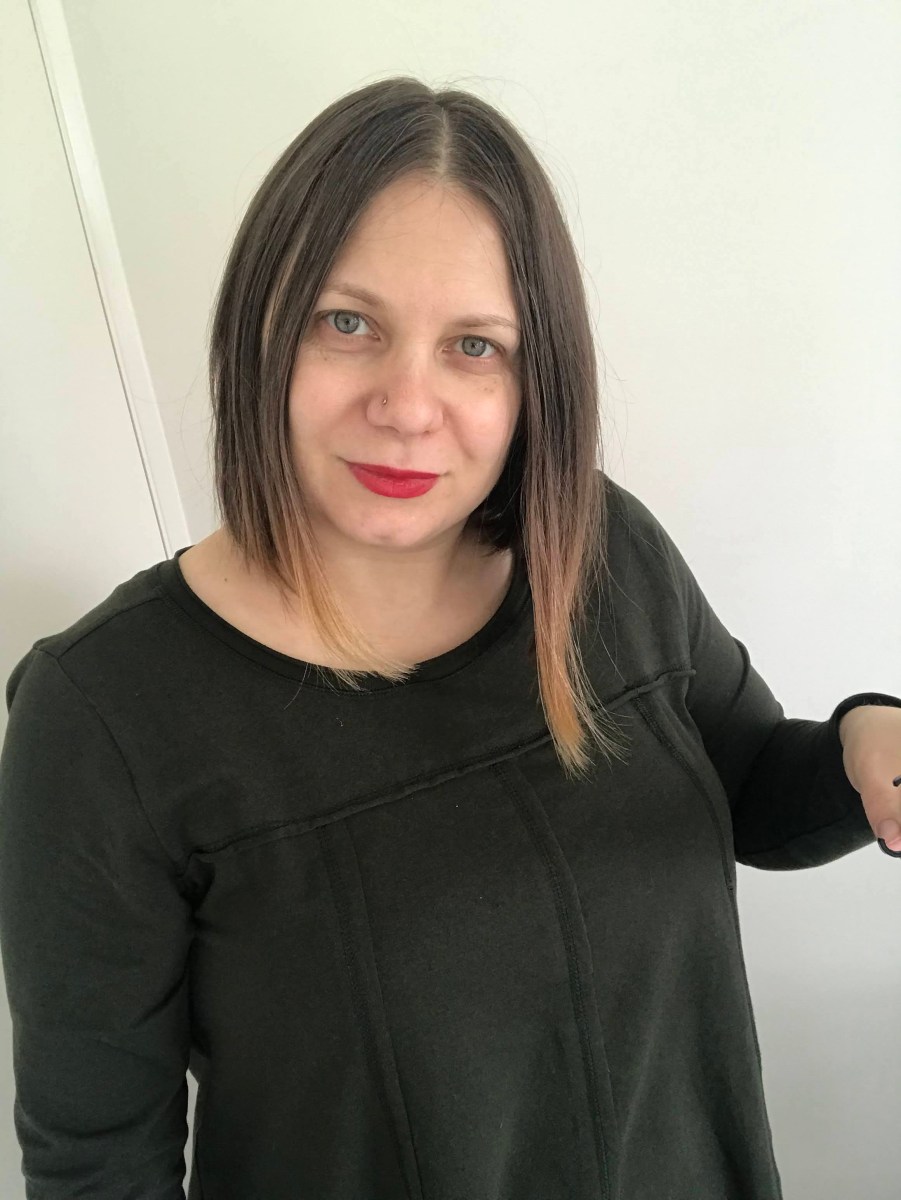
Even though the money was duly absorbed into living expenses, Pajalić points out that winning it changed her life. ‘It funded me to write a sequel to my debut novel, which I recently republished as Sabiha’s Dilemma and reimagined as the Sassy Saints series. So even though this happened nearly 15 years ago, I am still reaping the benefit in using it as a foundation to build my career and now relaunch myself as a small press.’
After taking out the Tasmanian Book Prize and the Tasmanian Book Prize People’s Choice Award in 2019 for Bridget Crack, Rachel Leary says, ‘I think that winning the prize helped me feel like I could say: “I am a writer.” The money helped me to get housed, which is obviously a massive thing… I felt fortunate to get some public validation for this thing that I am inclined to spend a significant amount of my time doing, and that did change my sense of myself – who and how I am in the world – a little bit. I took it as permission to keep writing too.
‘These days, living on the smell of an oily rag is next to impossible. A lot of writers work full-time in another job and fit writing around that. Some work part-time to create more space for writing. They live on less so they can write. If a person is living on a two or three days a week wage, then any extra amount of money is going to be very helpful, possibly even life changing.’
In 2017 Heather Rose won the Stella Prize, the Christina Stead Prize and the Margaret Scott Prize for The Museum of Modern Love. Although you may think she was then rolling in the prizewinnings, Rose demurs. ‘Earning those prize monies in the same tax year meant I gave a hefty amount back to the government, although if I’d won the money in a casino it would not be taxable. It’s always struck me as odd that Australia Council/Creative Australia grants are taxed too. What may seem like a nice sum in government support is actually a lot less in reality,’ she says.
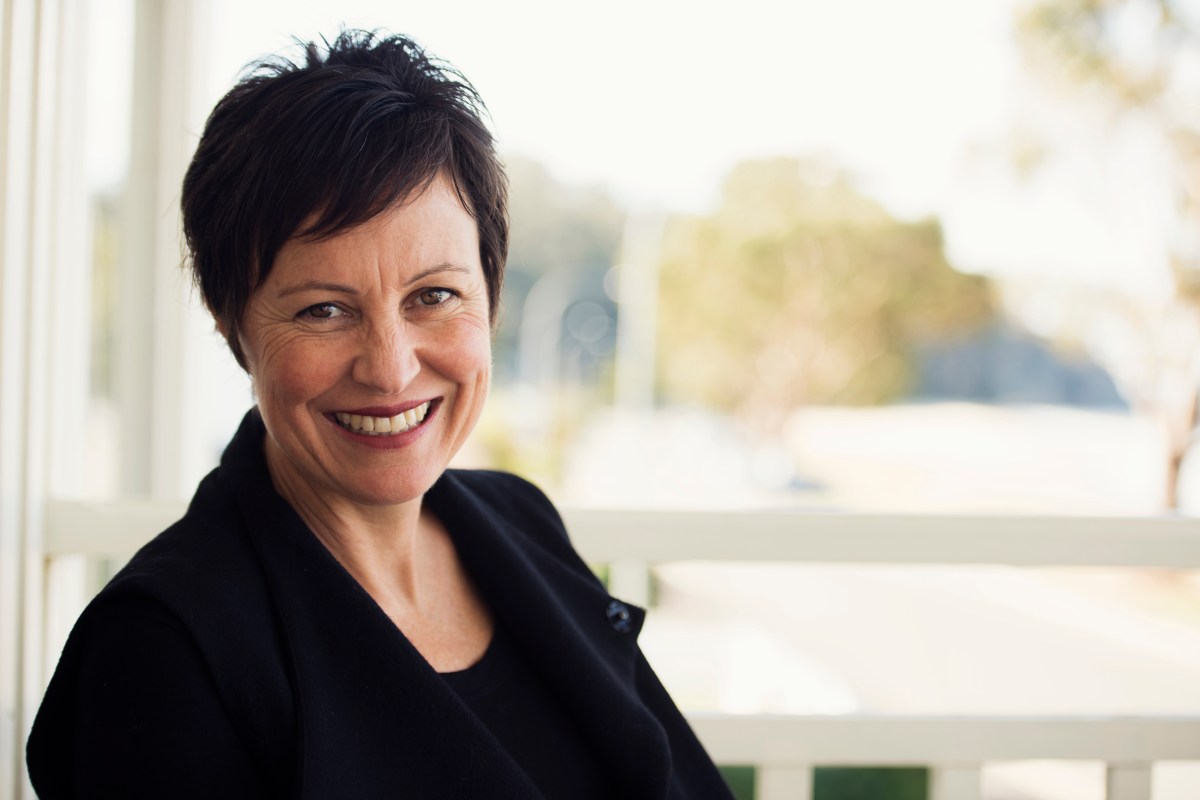
Offering the gift of time to concentrate on creative writing
Many authors note that winning a cash prize enables a substantial amount of time to be set aside for thinking about the next project.
Andrea Rowe has won multiple prizes – the CBCA Children’s Book of the Year 2022: Early Childhood for Jetty Jumping, the Speech Pathology Book of the Year 2023: Five to Eight Years also for Jetty Jumping and the Hal Porter Short Story Prize 2021 for Blemish.
‘I couldn’t believe I was a person who would have a sticker on a book. I grew up collecting books with Book of the Year stickers on them. I didn’t even realise the CBCA prize was financial as well as a blingy medal! Then it was joy, pure joy. And validation that perhaps I’m not so bad at this writing caper! And relief that I could reduce the house bills with a small windfall.’
Rowe spent some of the money on small things that brought joy: a second-hand desk, memberships and subscriptions, a framed piece of artwork for her winning picture book, the ‘good macaroons and champers’ for a party for supportive family and friends, and a writer’s retreat to buy more writing time.
Most of all though, she says, ‘The prizewinning enabled me to step away from copywriting contracts for a few months to concentrate on new picture books’ development.’
As humble as her winnings were, Rowe describes them as a ‘game-changer’.
‘Awards come with validation, networking opportunities and a chance to grow your profile. I took every invitation on board. It opened me up to festival appearances, workshop hosting, author touring events in libraries and schools, speaker agencies’ listings and interviews. All of that helps build your author presence. It’s effectively helped me swap out my copywriting day job (which was already at risk thanks to recent industry changes) to focus on building and delivering author workshops,’ she explains.
‘I couldn’t have called myself a jobbing author before winning the awards. Before the CBCA award, I was a copywriter with a book. Now I spend 85% of my working year earning income as an author, and only 15% as a copywriter/communicator.
‘l’ve also gone on to secure numerous publishing contacts since then (several with the same illustrator, Hannah Sommerville, with the industry now calling us “that award-winning duo”!),’ she adds.
Naomi Parry Duncan agrees that winning literary prizes has allowed her to focus on her writing by relieving the stress of having to find alternative income. She’s won the Australia Institute/Endeavour House on The Level (Canberra) Writer-in-Residence (2017), the Australia Council for the Arts Project Grant (Literature) (2019), the Copyright Agency Ltd Cultural Fund COVID-19 Emergency Action Fund Grant (2020) and the Hazel Rowley Literary Fellowship (2022).
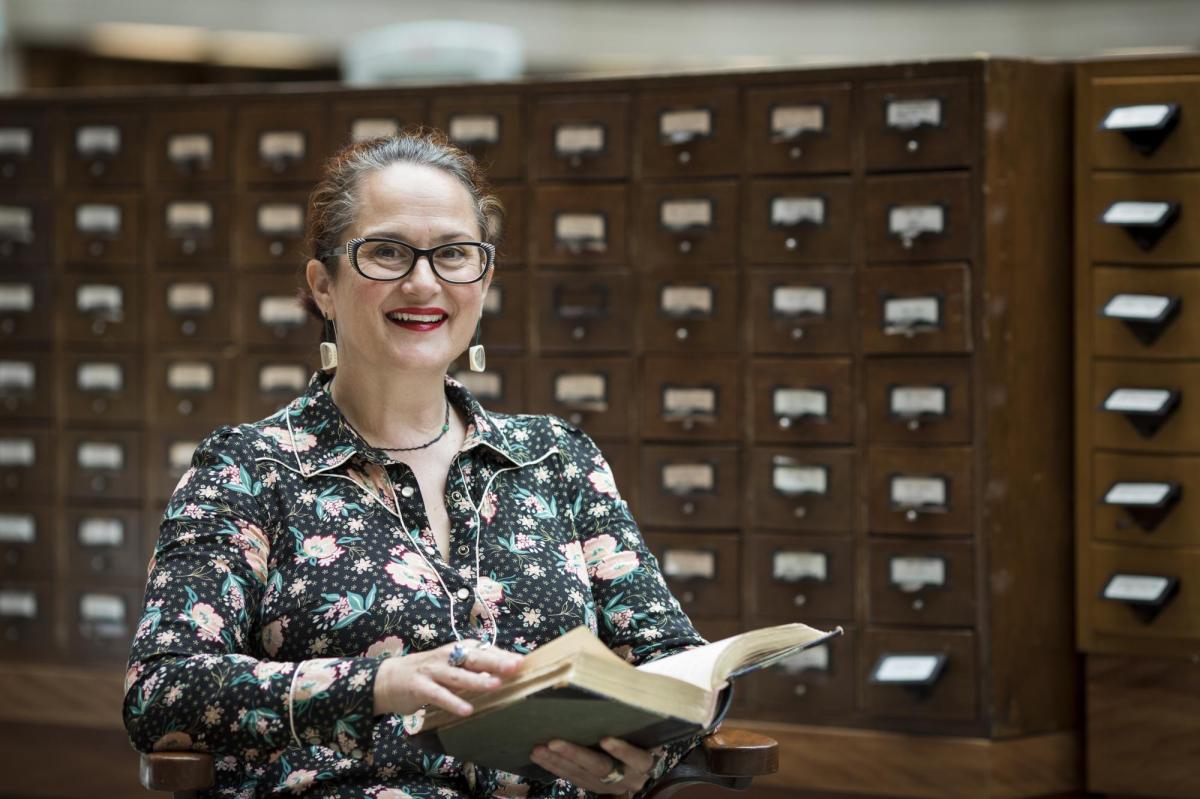
‘The award money has always been used for extremely pragmatic purposes – to fund necessary travel, and to provide sustenance. I live on the smell of an oily rag, as a single mother from a working class background who has a writing problem, and each of these awards has helped me take time away from my freelance work so I can focus.
‘I do think these awards have changed my life. Even the process of refining the projects for applications has been beneficial, because it requires a certain rigour and some fortitude! Winning the awards has given me confidence, and each one has increased my profile as a writer and expanded my writing community.’
As well as ensuring the writing of new books, winning can change life’s trajectory
Natalie Damjanovich-Napoleon won the Bruce Dawe National Poetry Prize when she was living in the US. It sparked a book launch and a country move. ‘If I hadn’t won the Bruce Dawe, I don’t think I would have got my debut collection published. Getting First Blood published was what gave me the confidence to think about postgrad study. I applied for a creative writing PhD program in Australia while I was living in the US and received a full scholarship. I’m sure winning the Bruce Dawe and having a published poetry collection helped me get a scholarship and a place. So that’s what got my family to move from the US back to Australia. It was huge. One poem changed the course of my whole life!

‘Then the KSP [Poetry] Prize gave me the impetus to work on the second collection, which subsequently got published by the gorgeous Life Before Man Books. And the Peter Porter has given me a boost, which I hope to use to get my third, quite radical, erasure poetry collection published’.
Although The Museum of Modern Love was Heather Rose’s seventh published novel, she informs ArtsHub that it was the first book that reached a broad national readership, after it won the Stella Prize in particular.
‘If I had not been for the events in 2017, I’d still be writing but, given the need to earn money in various other ways, I would not have written Bruny (2019), Nothing Bad Ever Happens Here (2022) and my next novel too, that’s due for release at the end of 2025.
Rose offers the salient reminder of the worth of prizes for any writer, given the paucity of government grants. ‘It’s a privilege to spend each day living in other worlds with characters and stories that reach back and forth through time, but it takes a lot of time and a lot of discipline to work alone for years researching and writing and crafting a novel. Having financial resources to keep the bills paid over those years is still the hardest part of being any writer in Australia (perhaps with one or two rare exceptions). Prizes and grants are very hard to come by, and rarely happen in a writer’s career.’
She adds, ‘What we miss here in Australia is the philanthropy that we see in the US with the Guggenheim and the MacArthur Fellowships that give writers significant long-term financial resources, so they have time to pursue their art for years. The books and works of art that have resulted from those fellowships in the US have enriched the world.’
Winning prizes can literally save your life. An author who wishes to remain anonymous tells ArtsHub. ‘I have won three major literary prizes, and they have genuinely been life-changing. The money gave me the financial independence to leave an insidiously abusive marriage. I clearly remember the day I won the biggest prize and realising it meant I could finally leave if I needed to. That moment felt enormous.
Read: Miles Franklin shortlist 2024
‘I have complex PTSD (post-traumatic stress disorder) because of the abuse, which has profoundly affected my ability to work so, without the prize money to help support me after the end of my marriage, I would have been in a very, very difficult situation. It is amazing to have written two books that have now helped me save my own life. I have been so stuck, and now I can start to feel free.’
